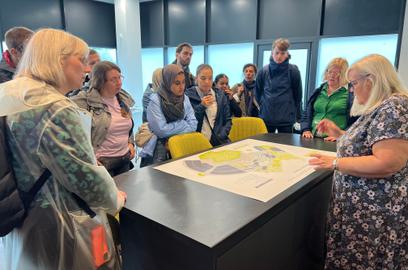Sustainability at Tibbalds

Tibbalds
Tibbalds’ Urban Designer Evelyn Wong discusses sustainability initiatives in the studio and steps to improve in the future.
In our project work, creating and achieving sustainable environments is at the heart of what we do. For us, this means creating places that thrive by sustaining themselves economically, socially and environmentally – even once the urban designers, architects and planners have all moved on to their next project.
This fundamental objective to make sustainable places in practice also carries over to our office. In regard to economic and social sustainability, Tibbalds became an employee-owned company in 2015. This has enabled employees to benefit from the company’s successes, and therefore become invested and involved with how the business is run. This approach led to the creation of a variety of office ‘teams’ that focus on continuously improving one particular aspect of the company through regular meetings and actions, for example, IT, marketing, sales, etc. I am a member of the Office Environment Group where we have been successfully working to drive forward environmental sustainability in the office.
When I joined the office in July 2018, Tibbalds were already providing:
- an office Brompton, for employees to use to get around London;
- organic fruit and milk;
- recycling for both mixed paper and other recyclable items;
- envelopes made with reused maps,
- toilet paper sourced from ‘Who Gives a Crap?’, an environmental and socially-focused organisation, and,
- a boiling/chilled filtered water tap.
Having been involved with improving sustainability practices in my previous workplaces, I understand how important it is to get buy-in from colleagues before making any major changes. Therefore, at Tibbalds’ December 2018 Staff Forum (a quarterly all-inclusive office meeting where new ideas for the company can be raised and discussed), we asked everyone to brainstorm ways to improve sustainability in the day-to-day life of the office. There was a positive and lively discussion and the Office Environment Group came away with a long list of suggestions that we are now investigating or have completed already.
There were also some fundamental questions raised regarding: what is actually recyclable? What happens to the recycled products? And why should we recycle? We also received comments regarding our previous recycling bin signage, which colleagues found did not clearly indicate what should go in which bin. Due to the UK’s inconsistent recycling policies (which differ between local authorities), it is not surprising why people would be confused!
Darren Smith, our Studio Manager and Office Environment Group lead, and I reported back to the office recently during successive weekly team meetings in February to try and shed some light on these issues. In Darren’s session, he shared information about what happens to our mixed paper, other recyclables and general waste collections at Tibbalds. He shared that our mixed paper is recycled back into office printing paper; our recyclables are processed at Southwark’s Integrated Waste Management Facility and distributed to manufacturers who will turn the recycled raw materials into new products, like clothing and outdoor furniture; and, general waste is converted to energy at the SELCHP Energy Recovery Facility.
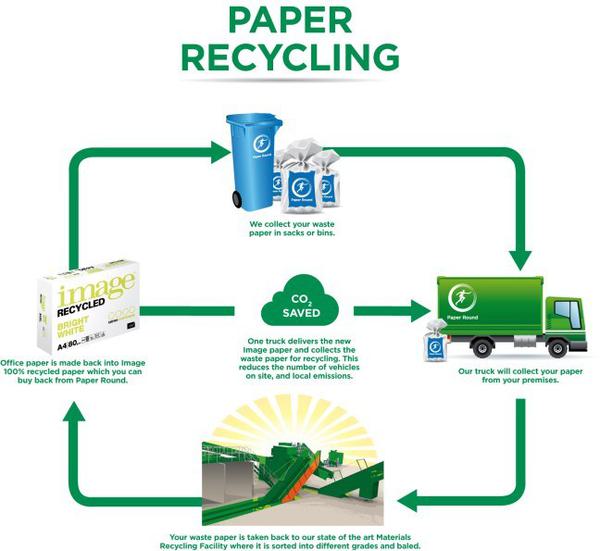
In my follow-up session, I explained what recyclables Southwark actually processes and proposed new bin signage to communicate this. As of two weeks ago, the new signage, including new bin labels, has been put up and we will be monitoring the effects of this revamp.
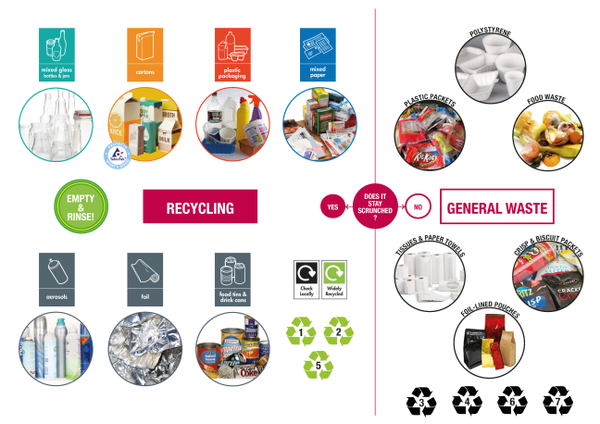
Feedback from these sessions suggested that one of the most useful pieces of information that we shared was what each of the plastic ‘numbers’ mean and whether or not they are commonly recyclable (based on information from BBC: https://www.bbc.co.uk/news/science-environment-45496884, and please check your local authority’s website for more specific information).
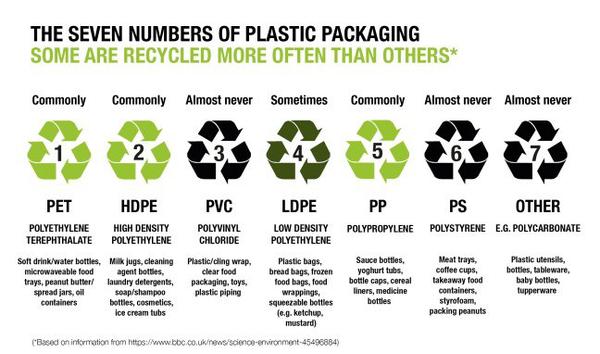
Other suggestions that we have initiated since our Staff Forum last December are:
- Turning down underfloor heating slightly to reduce energy use, and therefore bills
- Removal of personal waste bins to create the need to consciously sort rubbish and encourage micro-breaks away from the desk
- Improving print settings and software – earlier this year we exchanged our printer for a new Canon Image Runner and set the default to double-sided printing. The new printer includes a print-release function (which has dramatically reduced the number of misprints, and automatically records printing against job numbers), an in-built staple-less stapler, and generally uses less energy than our previous machine.
- Introduction of loose leaf tea using reusable strainers and teapots
- Creation of a full office product inventory in order to assess what products could be replaced with more environmentally-friendly options, including bulk-buying to reduce packaging e.g. refilling soap dispensers instead of continuous replacement of new dispensers
“We don’t have to engage in grand heroic actions to participate in the process of change. Small acts, when multiplied by millions of people, can transform the world”
While some actions may seem small, it is important to remember that the accumulation of many small acts done regularly can make a great impact! I also firmly believe in the power of planting seeds – by talking about how personal waste can be reduced or suggesting ways for people to do it ‘next time’. While it’s unlikely that most people will change their behaviours straight away, eventually something may click! Actions will transform into habits, and soon more people will talk about it and start planting seeds with their friends and family, who may pass it onto their workplaces also.
Another suggestion from the Staff Forum was to initiate ‘Office Challenge Days’, where we choose a regular day of the month to challenge ourselves on various environmentally-focused issues. Our first challenge day will be on bringing no single-use plastics into the office, which was viewed as a great way to learn and share information on what exactly are single-use plastics. We are currently refining the logistics of our first Office Challenge Day, including brainstorming the potential penalties(!), however we look forward to posting the outcome of this on the blog – so stay tuned!
Topics:
Related Updates
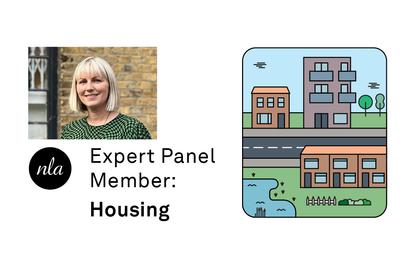
Lizzie Le Mare joins NLA Expert Panel

Tibbalds

Lizzie Le Mare attending LREF 2024

Tibbalds
Stay In Touch
Sign up to our Newsletter
Subscribe to our newsletter to receive updates about making people friendly places.
